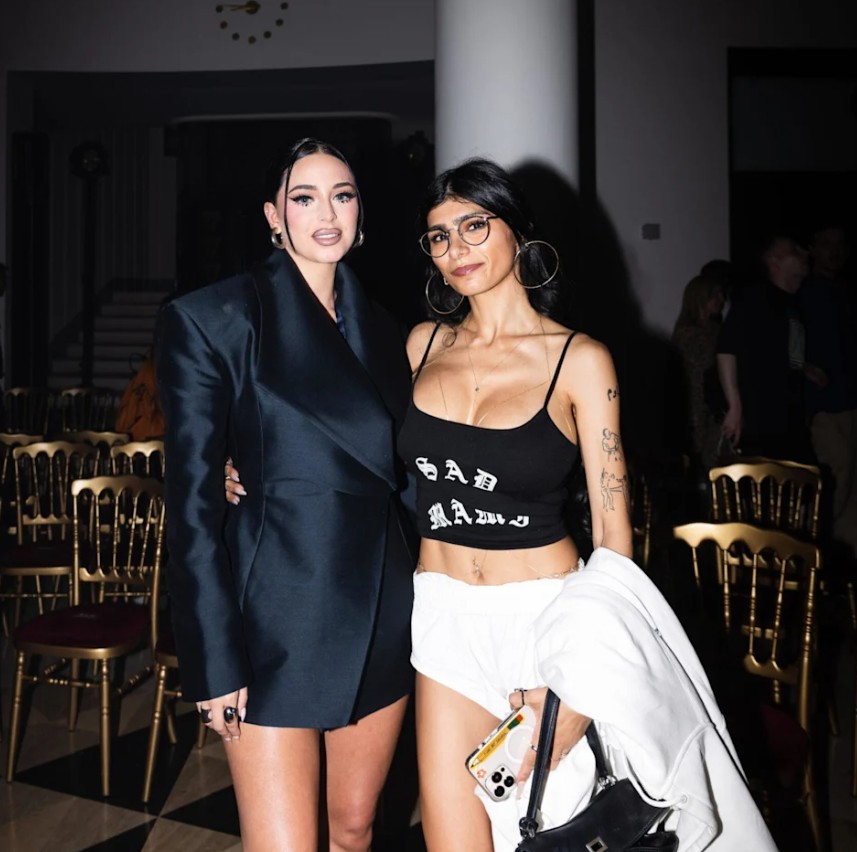Camilla Araujo Video Viral and Online Reactions
Camilla Araujo, a rising influencer known for her vibrant personality and fashion content, has recently found herself at the center of a social media storm. A private and video, allegedly featuring her, was leaked online and has since gone viral across multiple platforms. As with many digital-age controversies, the clip’s circulation has sparked intense debate about online privacy, public curiosity, and the ethical boundaries of internet sharing.

This article explores the origins of the leak, the public’s reaction, Camilla Araujo’s response, and the broader implications this incident holds for digital culture and personal privacy.
Contents
The Emergence of the Leaked Video
The controversial video began circulating in mid-July 2025. Initially uploaded anonymously to Telegram and then reposted on Reddit and Twitter, the clip appeared to show a young woman, alleged to be Camilla Araujo, engaged in an act. The short video quickly spread, with users dissecting the footage, comparing appearances, and speculating on its authenticity.
The leaked video of Camilla Araujo has sparked intense controversy
camilla-araujo-video-leaked-1.mp4
camilla-araujo-video-leaked-2.mp4
Although the original uploader remained unidentified, the video was downloaded and reshared thousands of times within the first 24 hours. Social media algorithms amplified the buzz as more people engaged with hashtags like #CamillaAraujoLeak and #ViralVideoScandal, propelling the topic to trending status in several countries.
Questions about consent, identity, and digital security soon overshadowed the initial shock factor, transforming the leak into a topic of serious concern.
Public and Online Reaction
As with most viral leaks involving a public figure, the online response was a mix of support, ridicule, and invasive speculation. Some users rushed to express sympathy, emphasizing that no one deserves to have their private moments shared without consent. Others, however, engaged in victim-blaming or fueled the fire by resharing the clip or mocking Araujo.
Twitter and TikTok became hotbeds of commentary, with users creating reaction videos, memes, and “analysis threads” attempting to confirm whether the woman in the video was indeed Camilla. Influencer gossip pages picked up the story, further pushing it into the mainstream.
A small yet vocal group of supporters defended Araujo’s right to privacy and called for legal action against those sharing the video. Comments like “This isn’t content, it’s a crime” began circulating under related posts, highlighting the growing awareness of digital boundaries.
Camilla Araujo’s Response
Within 48 hours of the video leak, Camilla Araujo addressed the situation via her Instagram Stories and X (formerly Twitter) account. Her message was calm but emotional:

“I never imagined I’d have to write something like this. A private video, never meant for public eyes, was stolen and shared without my consent. This has been a huge violation of my privacy and dignity. I’m working with legal counsel to have it taken down and will pursue action against those responsible.”
Her statement was met with overwhelming support from fellow influencers and fans. Several notable creators reposted her message, urging their followers to report any reuploads and stand against the spread of non-consensual content.
Her tone measured but determined, shifted the conversation. Where before there was gossip, now there was growing accountability. Platforms began removing content under violations of community standards, and some accounts involved in distributing the video were suspended.
Legal and Ethical Considerations
The leak raises serious legal and ethical questions. Sharing or possessing explicit material without the subject’s consent is considered a form of many countries and is punishable by law.

Digital rights advocates were quick to weigh in. One cybersecurity analyst noted:
“This is not simply a scandal, it’s a crime. Sharing material without consent is a violation of both digital safety and basic human decency.”
Ethically, this situation exposes a flaw in internet culture. Many users still treat leaked videos as entertainment, failing to consider the real harm inflicted upon victims. Even platforms that claim to moderate such content struggle with the speed at which it spreads.
Camilla Araujo’s case emphasizes the importance of teaching digital ethics, encouraging social media platforms to act swiftly, and reminding users of the legal consequences of distributing explicit, unauthorized content.
Impact on Camilla Araujo’s Career and Personal Life
In the days following the leak, Araujo’s follower count surged, ironically reflecting the public’s obsession with controversy. However, this spike in attention came with emotional and professional costs.
Some brands and sponsors reportedly paused collaborations, opting for caution until the situation stabilizes. While some companies have expressed support for her, the stigma attached to leaked videos often causes long-term reputational damage.
The emotional toll has also been significant. Araujo’s recent posts suggest she is taking a short break from content creation to focus on healing and resolving the legal aspects of the situation. Supporters have continued to encourage her, using hashtags like #StandWithCamilla to show solidarity.
This incident is a stark reminder of how quickly public figures especially women, can become victims of digital exploitation, facing scrutiny for circumstances beyond their control.
Cultural and Societal Reflections
The viral nature of this leak also reflects our culture’s unhealthy obsession with voyeurism and scandal. Despite widespread awareness campaigns about online safety and consent, people still consume and spread non-consensual content at alarming rates.
The disproportionate impact on women is especially troubling. Female influencers are often, scrutinized, and held to impossible standards of purity or modesty. When their privacy is violated, they’re not only victims but are often blamed for the very violations they suffer.
Digital culture needs a reset. Rather than treating leaks as gossip fodder, society must begin seeing them as invasions of human rights. Education, policy enforcement, and collective empathy are necessary to shift this toxic paradigm.
Camilla Araujo’s leaked video has ignited conversations far beyond the clip itself. From the public’s reaction to legal implications and the emotional impact on Araujo, this incident is a painful but important case study in digital ethics and personal privacy.
As the internet continues to blur the lines between public and private life, it’s critical to remember that behind every scandal is a real person with dignity, rights, and feelings. The case calls for stronger protections, more responsible platform governance, and above all, a collective cultural shift toward empathy and respect in the digital age.
Breaking News -